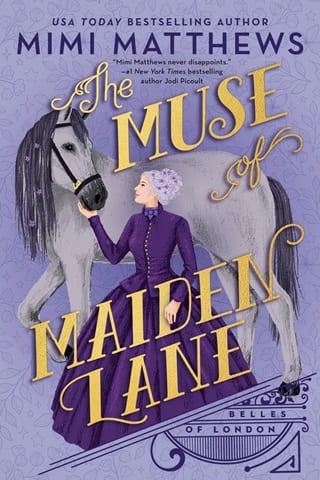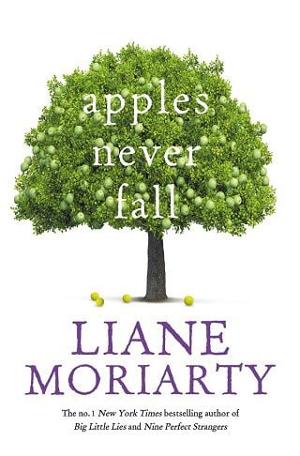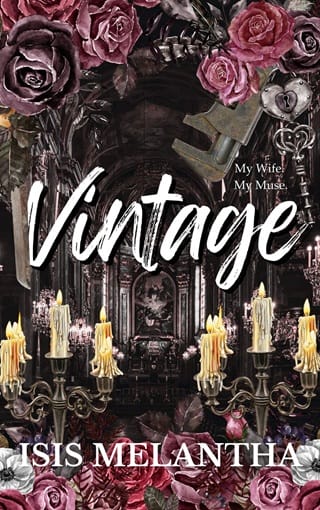Chapter Ten
Ten
“I suppose the announcement of Mr. Neale’s parentage could have gone worse,” Anne said the next morning as she and Stella tramped up the snow-covered hill that rose alongside the woods bordering Sutton Park.
It was the same hill that Stella had found Teddy painting on Christmas, topped by the same aged oak tree. A perfect hill for sledding.
The other guests marched ahead through the snow, sleds in hand, all of them snugly wrapped up in heavy coats, scarves, and fur-trimmed cloaks. Mr. Hartford walked along with them, carrying Anne’s and Stella’s sleds. He was courteous enough to give the two friends a semblance of privacy as they talked.
“I wish I could have been there to lend my support,” Stella said.
She’d excused herself from dinner again last night, in favor of a tray in her room. It had meant missing the announcement about Mr. Neale. Stella had been excoriating herself over it all morning. She’d never in her life abdicated a duty to one of her friends. And to have done so solely on account of her hair! It was unforgivable.
“My dear,” Anne replied. “Don’t distress yourself. There was nothing you could have done.”
“Of course there was. I could have stood in solidarity with you and Mr. Hartford. And I could have glared down anyone foolish enough to engage in malicious whispering. You’ve said yourself that there’s no greater defense against gossip than a united front of friends and family.”
“I appreciate your willingness, but safeguarding your reputation is far more important at this stage. We’ve come this far without anyone realizing your hair has changed color. We’ve only another day to get through.”
“Yes, but still—”
“But nothing. I’ll not have you raking yourself over the coals on account of this.” Anne linked her arm through Stella’s. “The announcement was all very perfunctory, in any case. The earl rolled it in as a matter of course when he stood to thank various far-flung guests for having made the journey to Hampshire. ‘ Thank you to the Bedlows for traveling from Cardiff, and to the Archers for coming all the way from Grasse. And many thanks to my natural grandson, Mr. Neale, for having joined us on the eve of his departure to Inverness .’?”
“His natural grandson?”
“That’s how he phrased it. A perfect description, to my mind. Not at all tawdry.”
Stella wasn’t so sure. Calling someone a natural child was just a polite way of stating that the child was a bastard. No one at dinner would have mistaken the meaning. “How did everyone react?”
“Lord Brookdale and his wife were pinch faced but resigned. The earl was pale but determined. And Mama was perfectly marvelous. She raised her glass to Mr. Neale, the dear. As for the rest of the guests…they were fit to burst with excitement at the news. I suspect the earl will find himself short of ink and paper by tomorrow’s end, with all of them writing to their friends in London to spread the news. People love a good scandal.”
Stella’s lips compressed with disapproval. “How dreadful of them. Especially after enjoying the earl’s hospitality. You’d think they’d exhibit more loyalty.”
“Their letters will do naught but aid the situation,” Anne said. “This sort of scandal can only be blunted by sunlight, and the more of it, the better. Once everybody knows, it will fade into memory. Another scandal will soon come to take its place.”
Stella cast a concerned glance at Mr. Hartford. Snowflakes swirled about his tall frame, landing lightly on his dark wool overcoat, as he climbed up the path ahead of them. “How is he?”
“Cheerful in the face of adversity, as ever.”
“And how are you? You’re not upset or—”
“No, indeed. It would take more than a familial scandal to put me out of countenance.” Anne gave Stella’s arm an affectionate squeeze. “It’s I who should be asking after you , not the other way around. I hate leaving you on your own so much. It wasn’t at all part of the plan in inviting you here. You were meant to be enjoying yourself.”
“I was meant to be thwarting my brother’s matrimonial campaign for Miss Trent,” Stella said.
“In that, at least, you will have been successful.”
“A fleeting success, I fear. Daniel is bound to marry someone eventually, if not Miss Trent, then another young lady. Now he’s thirty, he says that he must, or else risk the displeasure of his parishioners.”
Anne’s sturdy boots crunched over the snow. “What have they to do with it?”
“Many of them believe that to be unmarried is to be unnatural. It’s why Daniel would rather I wed Squire Smalljoy than remain his spinster sister. The villagers don’t like spinsters. I daresay they suspect us of being up to no good.”
“Another reason you shouldn’t remain in Fostonbury.”
“Small-minded people aren’t limited to remote Derbyshire villages,” Stella pointed out. “They reside in every corner of the realm.”
“And they’re all of them frightened of women with power,” Anne stated unequivocally.
“By that measure, they’ve no need to be frightened of me at all. I haven’t any power to speak of.”
“Nonsense. You still have the power of choice.”
Stella cast her friend a half-smiling look. Anne was descended from a long line of formidable aristocrats. She’d never yet met a problem she couldn’t conquer through sheer, blue-blooded strength of will. It was unfathomable to her that anyone could find themselves a true victim of circumstances.
“If only I could choose without consequence,” Stella said. “And without regard to the limitations of my pocketbook.” She gazed out at the snow for a moment in frowning contemplation. “I tried to befriend her, you know.”
Anne drew Stella closer against the morning chill. “Who? Miss Trent?”
“When we met in Exeter. Her bearing seemed sweet enough on first acquaintance, and she’s of a similar age to us. But she didn’t want to be friends. All she wanted was my brother, and to be rid of me in the bargain. We’d not been alone together ten minutes before she was advising me on altering my behavior— and urging me to give up Locket.”
“No!”
Stella’s mouth twisted in a bitter smile. “Miss Trent takes my riding as a personal affront.”
Anne was incredulous. “She objects to horses?”
“She objects to the expense.”
“An expense you subsidize out of your own inheritance,” Anne retorted indignantly.
“Exactly. She’d rather I let my brother have my income for good works than waste it on my own selfish pleasures.”
Anne snorted. “Good works, my eye. What she really means is that if your brother had your money, he might keep a carriage and hire more servants. She could then swan about the village like the lady of the manor.”
Stella suspected Anne was right. “One can’t blame her for looking out for her own interests.”
“She could at least be honest about it,” Anne said. “Instead, she cloaks her self-interest in a shroud of piety and virtue, which she then uses as an excuse to lecture you on your behavior. You! The dearest and sweetest among us! As far as I’m concerned, your brother is well shot of her.”
Stella pressed Anne’s arm in wordless acknowledgment of her praise. “I’m just relieved I no longer have to worry over having her as my sister-in-law. She’ll have returned to Exeter by now. With luck, my brother’s affections will cool in her absence, and he’ll never mention her more.”
“One can hope,” Anne said. They passed beneath the snow-laden branches of a tree. “I only wish you could have had a better time while you were here. It seems to have been one catastrophe after another, hasn’t it?”
“It hasn’t been all bad. I’ve had great fun riding and visiting the ruins. And today’s sledding is sure to be one of the highlights of my stay.”
“There will be sleighing tonight, too, if the snow is deep enough for it.”
Stella brightened. There were few things more enjoyable than flying across the snow in a horse-drawn sleigh, the moon shining bright above. “How wonderful!”
“It is. Still…It’s not a romance.” Anne exchanged a meaningful look with Stella. “You’d hoped to meet someone during your stay.”
“As to that—”
“Though, I don’t suppose there was anyone here to spark your interest,” Anne went on. “Not unless you count Mr. Hayes.”
Stella tensed. “What about Mr. Hayes?”
“He’s an interesting fellow.”
“Yes, but…not in a romantic way.” Not unless Stella thought about his hands. Or the intensity in his eyes. Or the broadness in his shoulders. Not unless she recalled the compliments he’d lavished on her.
“I only meant that he’s rather amusing,” Anne said. “Charming, in fact, if one can dismiss his youth and chronic insolence.”
Stella laughed. Teddy was insolent. And young. And arrogant. He was also clever, and talented, and entirely self-assured.
He knew how to be quiet, too. Something Stella appreciated, as much in a friend as she did in a gentleman. Much of the time Teddy had spent sketching her had been in silence. A silence punctuated by the sound of his pencil scraping, and the steadiness of his breath. She’d been still, too. Never mind that the regular weight of his gaze on her had raised her temperature by several degrees.
If Teddy had experienced a similar disruption in body heat, he hadn’t betrayed it. They’d parted yesterday with no more compliments on his part, nor even any particular sense of warmth. No. His warmth had been reserved for his sketch. He was still toiling over it with that same fever-bright intensity when she left him. He’d looked up just once as she’d walked out the door of the parlor, and only to remind her of her promise to return the following day.
Stella had reminded herself, then, just as she reminded herself now, that he wasn’t the marrying kind. He’d made that fact abundantly plain during their session yesterday. Almost too plain. It was as though he’d wanted to put her on her guard.
Did he fear that, in her desperation to make a match, she’d set her cap for him? He was, after all, a gentleman of means. A handsome one, too. He must have had many admirers during his years on the continent.
“He was invited to come with us today,” Anne said. “He’s been invited on all our outings, and has consistently refused.”
“Has he?”
“Mr. Hayes prefers to paint. It’s why he accompanied the Archers in the first place, apparently, for Sutton Park’s artistic inspiration. Lord March has given him use of a private parlor to serve as his studio for the remainder of his visit.”
Stella briefly averted her gaze. Anne didn’t need to know that Stella was intimately familiar with that private parlor, or that she—not Sutton Park—was currently serving as Mr. Hayes’s inspiration.
“I expect he’s one of those artistic people who prefer living in their own head to living in the greater world around them,” Anne said. “Though it hasn’t prevented him from joining us for every other entertainment. He’s been in the drawing room each evening, and attended both dances in the ballroom.” She gave Stella a regretful look. “I wish you could have danced during your stay, instead of having to hide yourself away upstairs.”
“So do I,” Stella said feelingly. “I’d have loved waltzing, even if it was only with an altruistic neighbor gentleman that Mr. Hartford had conscripted as my partner.”
“It’s not your last chance for romance. You shall be in London again in the spring.”
Stella’s smile turned quizzical. “Shall I?”
Anne’s eyes twinkled back at her. “I expect you at my wedding in March.”
Stella’s brows swept up in astonishment. “So soon?”
“Hartford and I are set on marrying on the first day of spring. We’ve waited seven years to be together. We neither of us wish to wait any longer.”
“But I thought it was to be a grand society affair?”
Most aristocratic weddings took months and months of planning, not to mention all the travel arrangements that must be sorted out for extended family.
“It will be,” Anne said. “The earl and my mother are sparing no expense. Mama will be planning most of it. All I’ve insisted upon is the date, and that I must have three bridesmaids—you, Evie, and Julia.”
“Oh, Anne.” Stella’s heart swelled. She desperately wanted to be there. And not only for her friends, but for herself.
London suited her far better than Derbyshire. Far better, indeed, than any of the rambling, remote places in the country. She and Locket were made for town living. Not the fashionable parties or the fast-paced social whirl, but for the energy and the industry. For the museums, the galleries, and the shops; and for the wild—and completely improper—gallops in the park.
“I won’t take no for an answer,” Anne said. She caught Mr. Hartford’s eyes as they met up with the others. “Hart! Come and persuade Miss Hobhouse.”
Mr. Hartford was immediately obedient to Anne’s summons. He joined them on the path, his mouth tipped in a smile. “On what subject?”
“You must convince her to return to London for our wedding,” Anne said.
Mr. Hartford looked at Stella, a bit surprised. “Will it take convincing?”
“No, indeed,” Stella said quickly. “I want to come. It’s my brother that’s at issue. He won’t be eager to escort me back to London so soon after we’ve left it. He means us to remain in Derbyshire through the summer.”
Through the end of time, more like it. But Stella wasn’t inclined to be specific.
“If he won’t bring you,” Anne said, “I’ll come fetch you myself.”
“You will not,” Stella said. “I won’t have you disrupting your wedding planning on my account.”
“I mean it.” Anne’s face held a gleam of unchecked determination. “The instant you need me, I shall be there, come what may.”
Stella felt a fierce rush of love for her friends. For Anne and for each of their sister Furies—all of whom, Stella understood, would do anything for her. “I know you will,” she said.
But when the worst happened, as it was bound to eventually, Stella had no intention of summoning her friends to save her. She loved them too well to burden them.
“I shall find a way to be at your wedding,” she promised Anne. “You may depend on me.”
?Teddy was wheeling himself to the library later that morning, hoping to have a word with his sister, when he encountered Felix Hartford in the corridor. It was the first Teddy had seen of anyone, except Jennings and Alex, since breakfast. Most of the others had gone sledding, with Stella having no doubt been among them.
Alex and Laura were among the few who had stayed behind, owing to Laura having awakened with an uneasy stomach. It was somewhat concerning. Teddy’s sister was rarely in ill health. Even the enduring effects of the scarlet fever were no match for her physical determination. A keen swimmer, Laura was forever pushing herself to her limits in an effort to strengthen her lungs and improve her general well-being.
It wasn’t like her to linger in bed. She didn’t have the patience for it. When he’d gone to check on her earlier, Teddy hadn’t been surprised to learn that she was already up and dressed, and had nipped down to the library in search of a book to relieve her boredom.
Jennings had helped Teddy down the stairs and into his chair so that Teddy might find her. The manservant remained several paces behind Teddy as Mr. Hartford approached.
“Mr. Hayes,” Hartford said. “Just the man I was looking for. Are you going to the library?”
“I am,” Teddy said.
Hartford held the door open for him. “Can you spare me a moment?”
“Of course.” Teddy wheeled into the room. On entering, Jennings dutifully withdrew to the corner, mutely awaiting the moment Teddy would have need of him again.
The library at Sutton Park was as vast as a cathedral, with a ceiling that rose two stories high. Leather-bound books lined the walls, and groups of overstuffed chairs and sofas were arranged in quiet nooks, both on the richly carpeted lower level and in the iron-railed gallery that surrounded the library’s second floor.
Some of the older guests were availing themselves of the chairs in front of the library’s cavernous fireplace. To Teddy’s disappointment, Laura wasn’t among them.
“Sledding was enjoyable, I trust?” Teddy inquired absently as he came to a halt by the library’s terrestrial globe. Cradled in a blackened mahogany stand, it was set in an alcove, far enough away from the fireplace to ensure a modicum of privacy.
“It was great fun,” Hartford said. “Though most of us were woefully out of practice. We spent more time headfirst in the snow than flying over it in our sleds.”
Teddy managed a smile. He used to go sledding with Laura when he was a boy. He used to do a lot of things. “I can imagine.”
“I was speaking to Mr. Archer before we set out,” Hartford said. “The subject of your chair came up.”
Teddy stilled. He fixed Hartford with the whole of his attention. “Oh?”
“Something about the inhospitableness of the outdoor terrain—and the indoor terrain. He said it was one of the reasons you haven’t joined us for any of our excursions out of doors.”
“He was making excuses for me,” Teddy said. “He needn’t have done. I already told Lord March that I would be working through most of my stay.”
“Yes, quite. Nevertheless…” Reaching into the inner pocket of his coat, Hartford withdrew a folded sheet of paper. “It’s what put the idea into my head.”
Teddy’s brows lifted. It took an effort to remain polite. He didn’t like people talking about his disability behind his back. Not even his family members, and not even to help him. “What idea?”
Hartford lowered his voice. “It’s not widely known, and I’d prefer to keep it that way, but I invest in the odd patent. New technologies mostly, with a practical bent.” He paused before elaborating. “A reengineered independent feed pump for a locomotive engine. An improved wringing-and-mangling machine for doing the washing. Even a patent for a steam-powered horseless road vehicle.”
“Fascinating,” Teddy said stiffly. “What has any of that to do with me?” Or with my chair , he nearly added.
Hartford handed him the folded paper. “This came across my desk several months ago. Or rather, something very like this. I’ve attempted to draw it from memory. Forgive me. Unlike you, I’m no artist.”
Teddy took the paper from him. He stared down at the image.
“It’s a wheeled chair,” Hartford explained. “One not unlike your own, but possessing a distinct advantage. The wheels of this chair are made of iron, not wood, and they’re covered in a hollow tube of vulcanized India rubber that’s filled with pressurized air.”
Teddy glanced up sharply from the drawing. “ Air? ”
“Odd, I know. But the purported benefits are significant.”
“What benefits?”
“A more comfortable ride, greater speed with less effort, and easier movement over troublesome surfaces. Apparently, the rubber doesn’t sink into loose gravel or soft ground as readily as traditional wheels.”
Teddy couldn’t help but be intrigued by the possibilities. “Is that true?”
“I believe so. These wheels were inspired by an aerial carriage wheel patented some years ago. There was a demonstration of it in Regent’s Park when I was a lad. A promising invention, but it never caught on. The rubber wheels were too expensive for the average carriage owner to purchase and maintain, not to mention the cost of manufacturing them. But this inventor has adapted them to a smaller scale. I imagine he hopes his idea will appeal to wealthy invalids in search of greater mobility.”
Teddy’s interest piqued. He wasn’t wealthy by any means, but neither was he poor. The income he drew from the perfumery was a comfortable one, certainly enough to stretch to purchasing a patented wheeled chair. “Have you invested in it?” he asked.
“No. Not yet. I dismissed it, initially. It seemed too niche an invention. One ill-suited to the masses. The cost of production is exorbitant—and the proposed price even higher. Still, given the possibilities, I begin to think I was too hasty.” Hartford leaned down, examining the drawing along with Teddy. “Is it something you could use?”
“Very possibly, yes.”
“Would you be game to try a prototype?”
“I would.” Teddy gave a short laugh. “Hell, if it does everything it claims to, I’d buy one myself.”
Hartford smiled broadly. “That’s all I wanted to know.” He straightened. “The inventor chap is in London. He’s seeking an initial investment of capital to build his first half dozen chairs. I expect, with enough funds at his disposal, he’ll have them ready by the spring. Will you be in town?”
Teddy nodded. “I’m staying in Half Moon Street until the end of March. After that…I have no fixed address.”
“But you’ll still be in London?”
“I will,” Teddy said categorically.
“Splendid. I’ll see that you get the first prototype. Your opinions will be invaluable.” Hartford took a breath. “Can I assist you with anything before I go? Fetch you a book or a—”
“I didn’t come for a book,” Teddy said. “I’m looking for my sister.”
“Here I am.” Laura’s voice rang out, a trifle breathlessly. She hurried to join them from across the library, carrying a thick leather book in her hand. The full skirts of her wool day dress floated behind her as she approached. “I was in the gallery. I saw you both come in.”
Mr. Hartford bowed to her. “Mrs. Archer. Mr. Hayes. If you’ll excuse me.”
Teddy and Laura bid him good morning.
“Nothing’s wrong, is it?” Laura asked the instant she and Teddy were alone.
“Nothing at all,” Teddy said. “I went to your room to check on you, and Alex told me you’d gone to fetch a book. I thought you’d be in bed.”
“I’ve been in bed too long already this morning,” she said. “Was Alex still at his letters?”
“He was.” Teddy’s brother-in-law had been toiling over perfumery correspondence when Teddy had left him. He’d seemed more distracted than usual, with a restless air in the scratch of his pen and a deep groove of disquiet set in his brow. “How are you feeling?”
“Better.” Laura smoothed a stray lock from her temple, tucking it back beneath her lacy matron’s cap. “It’s strange. I was quite nauseated when I woke, but now I’m wholly myself again. It must have been something I ate.”
Teddy’s mouth dipped in a thoughtful frown. “Yes, I suppose it could have been.”
She smiled at his seriousness. “Is that why you’re here? Checking up on me? You needn’t have worried, you know. Alex has been as attentive as any nurse.”
“Of course I worry. But that isn’t why I was looking for you.” Teddy wheeled his chair beside his sister as the two of them departed the library, with Jennings following behind.
As ever, Teddy was loath to ask his family for help. He didn’t like them being involved in his private business. They were too involved already. But in this case, there was no other alternative. Unless he was mistaken, Laura possessed exactly what he needed.
“I wondered,” Teddy asked his sister, “if you might be inclined to do me a particular favor?”
 Fullepub
Fullepub 



